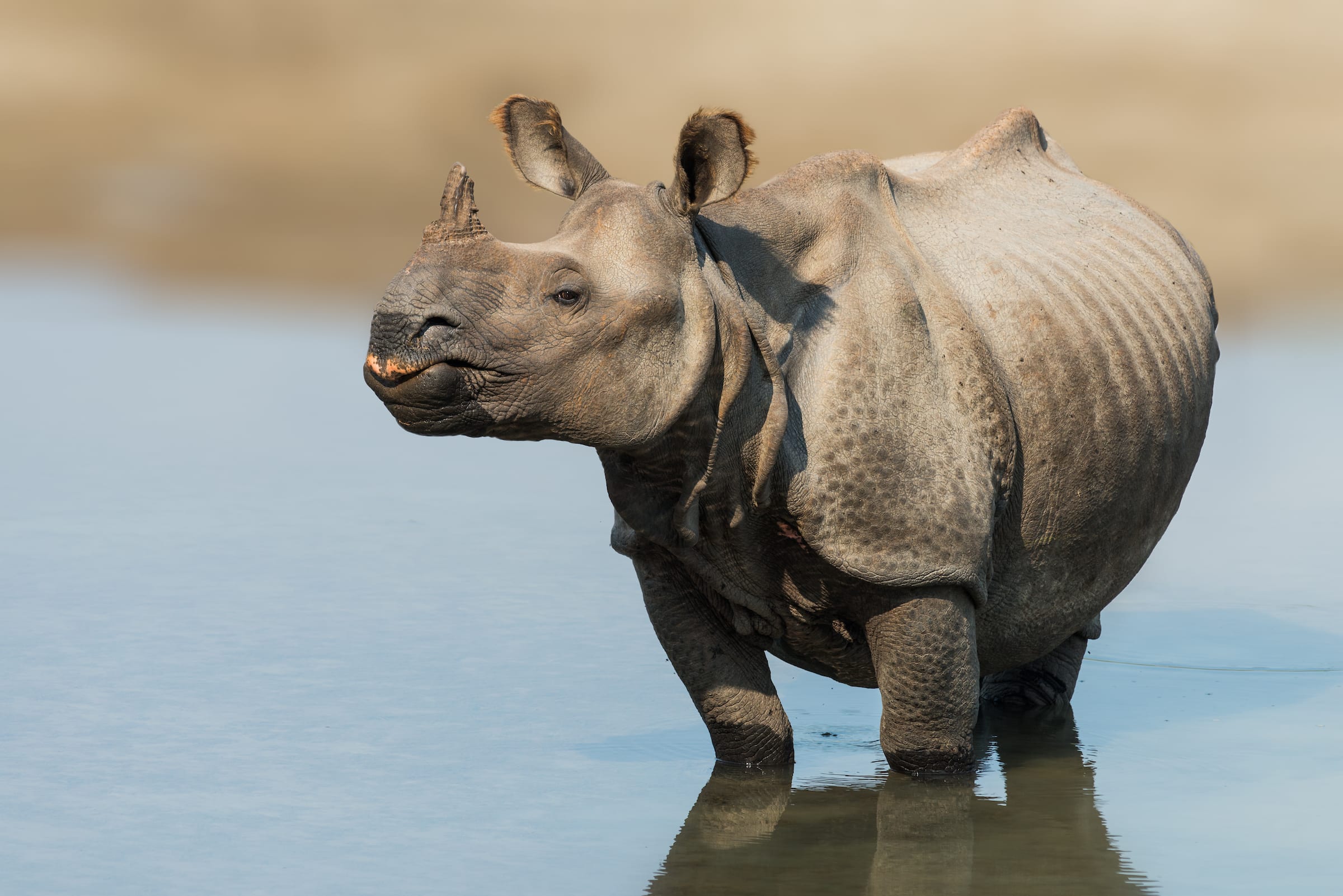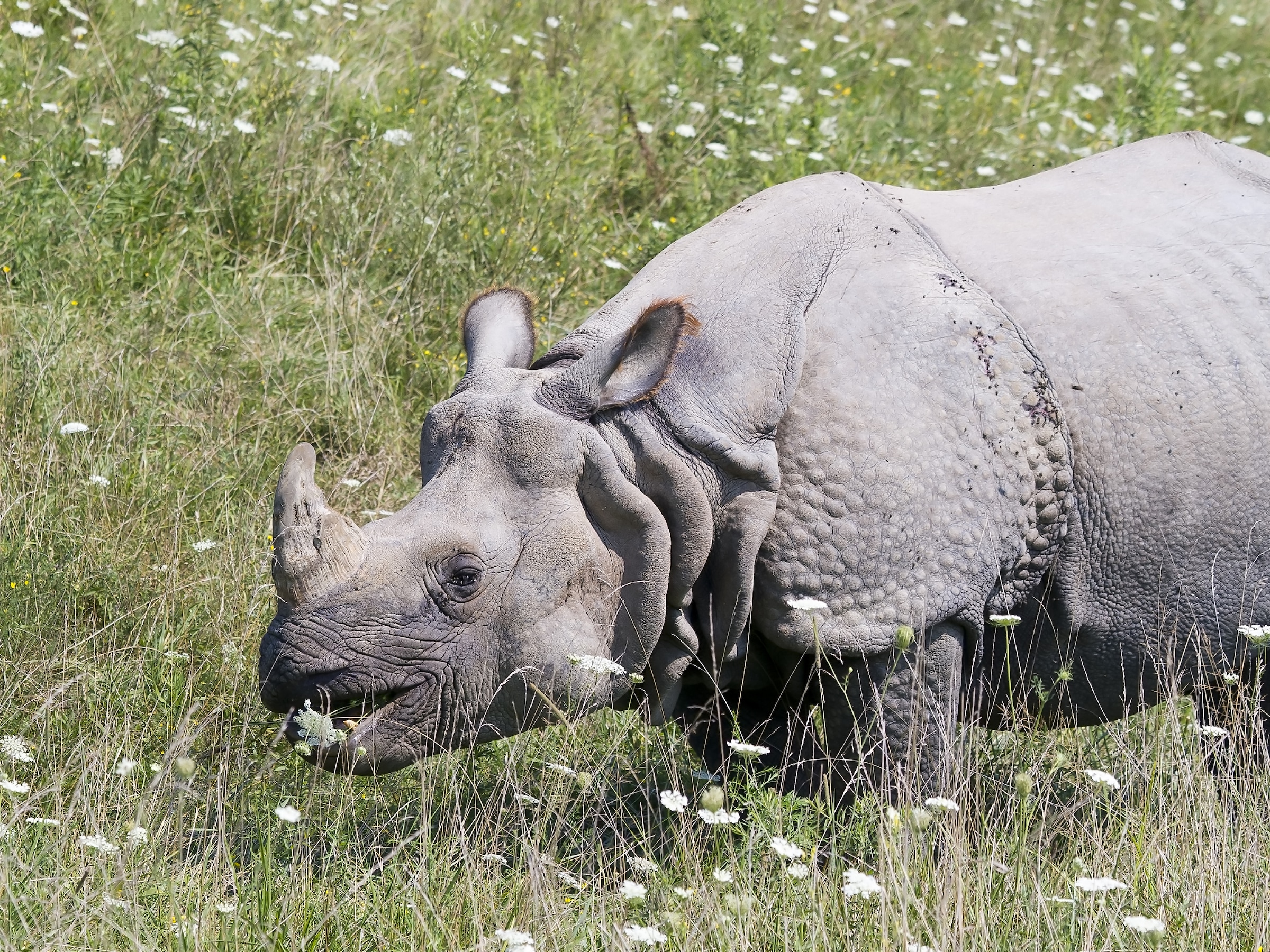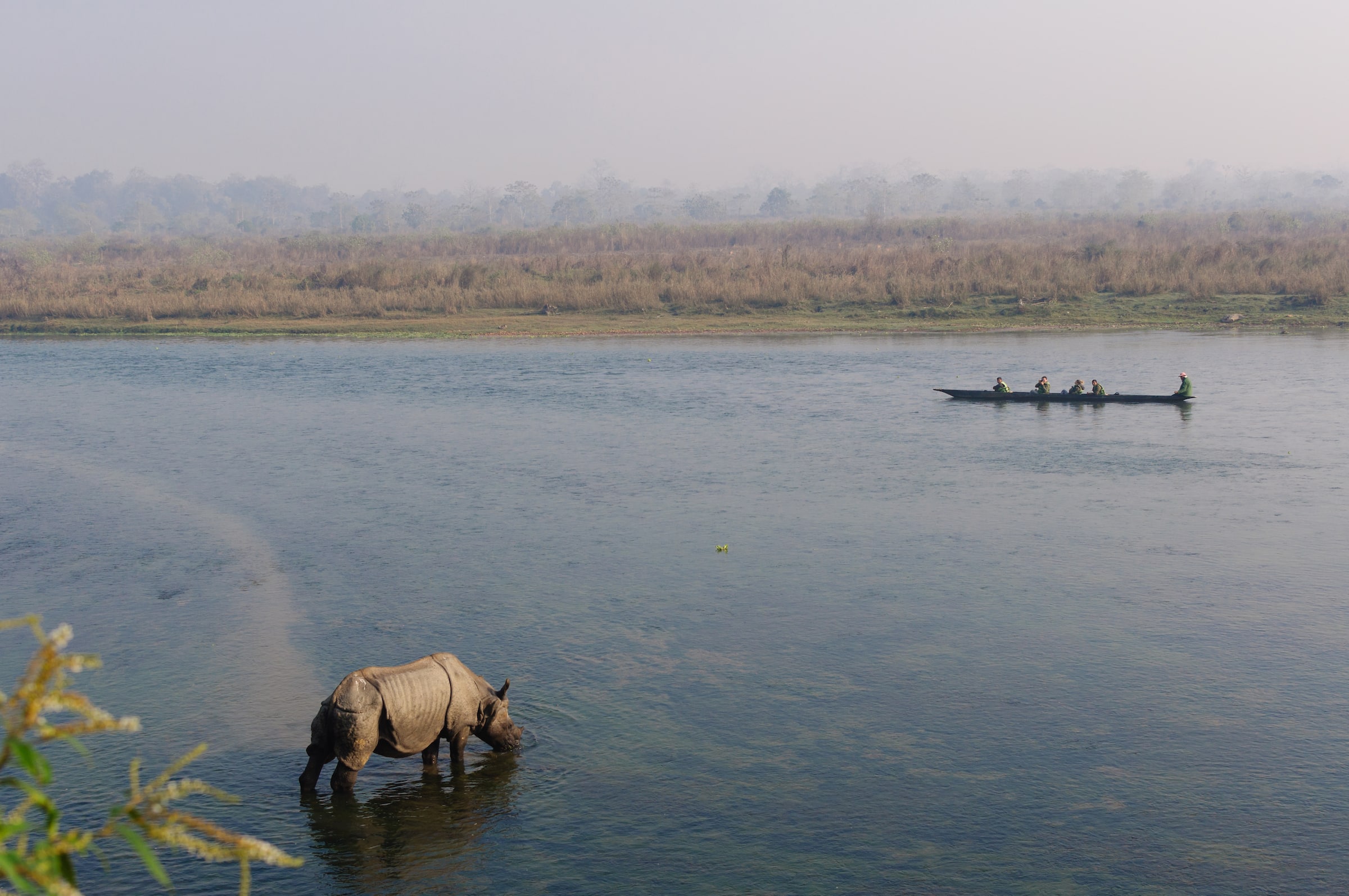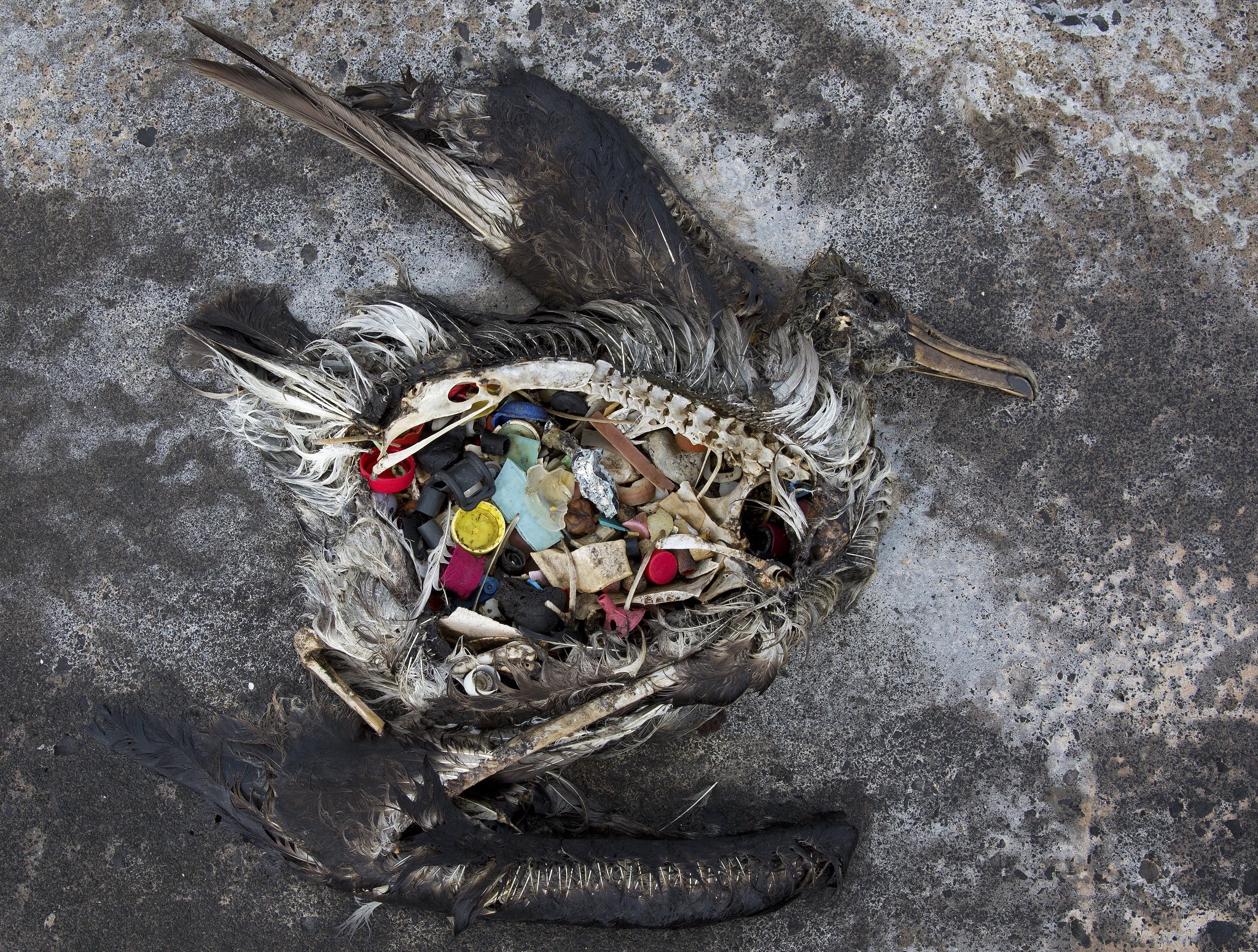Plastic pollution is often discussed as a prominent threat to marine wildlife, but harmful plastics can also be a threat to terrestrial wildlife. This possibility is highlighted by a recent study conducted in Nepal’s Chitwan National Park, which has picked up on an unsettling trend regarding the effect of plastic pollution on greater one-horned rhino populations.

While examining greater one-horned rhino dung piles during a seed dispersal study in 2020, researcher Balram Awasthi discovered visible pieces of macroplastics, such as bottle caps, snack wrappers, rubber bands, and even plastic balls. Worried by this unnatural discovery, Awasthi and his colleagues continued to analyze rhino dung piles in Chitwan for the next three years. They determined that 10% of the samples they collected contained noteworthy pieces of plastic in them. These results likely do not reflect the true extent of plastics that may be in the rhino population’s digestive systems, as the study only surveyed macroplastics; microplastics, which are not easily visible to the eye and are likely more numerous, were not included in their analysis.

Nepal generates 2.7 tons of plastic waste daily and much of it is entering rhino habitats through rivers. During monsoonal floods, plastic waste is deposited into the Chitwan landscape as the flood waters recede. The rhinos then consume the plastic inadvertently while foraging.
No rhino deaths have yet been linked to plastic ingestion, but the study also notes that 10% of rhino mortality in Chitwan is still unexplained. Consuming plastics can cause health problems like blockages or poisonings, and rhinos have particularly sensitive gastrointestinal systems that could be vulnerable to such hazards. Unlike other large herbivores like elephants, rhinos are not known to target waste dumps while foraging, meaning they are unwittingly ingesting plastic due to its mass proliferation in their environment.
Rhinos are constantly threatened by poaching and habitat loss. It is important that plastic pollution does not become another danger to their survival. The RRF is supporting the work of the National Trust for Nature Conservation (NTNC), who help protect and manage greater one-horned rhinos in Chitwan National Park. NTNC’s Dr. Babu Ram Lamichhane also co-authored this study on plastic pollution in Chitwan.

By ensuring that we do our part to reduce the threat that plastics pose to greater one-horned rhinos, we can help them avoid preventable health concerns and clean up their habitat.


